Education Policy and System in Singapore: Analysis and Challenges
VerifiedAdded on 2023/04/08
|5
|789
|207
Essay
AI Summary
This essay provides an overview of Singapore's education policy and system, highlighting its objectives, structure, and the challenges it faces. It emphasizes the importance of government policies in uplifting the quality of education and the central role of teachers in integrating these objectives. The essay discusses the trade-offs considered in policy-making, such as balancing rigor with student well-being and the role of examinations. It also addresses the challenges posed by rapid technological change, access to information, and globalization. Furthermore, the essay underscores the role of teachers in providing quality academic and life education, addressing inequalities, and fostering character and citizenship among students, ultimately contributing to the nation's betterment. The essay concludes that Singapore's education system is effectively directed towards helping students achieve their goals, with teachers playing a crucial role in this process.
1 out of 5
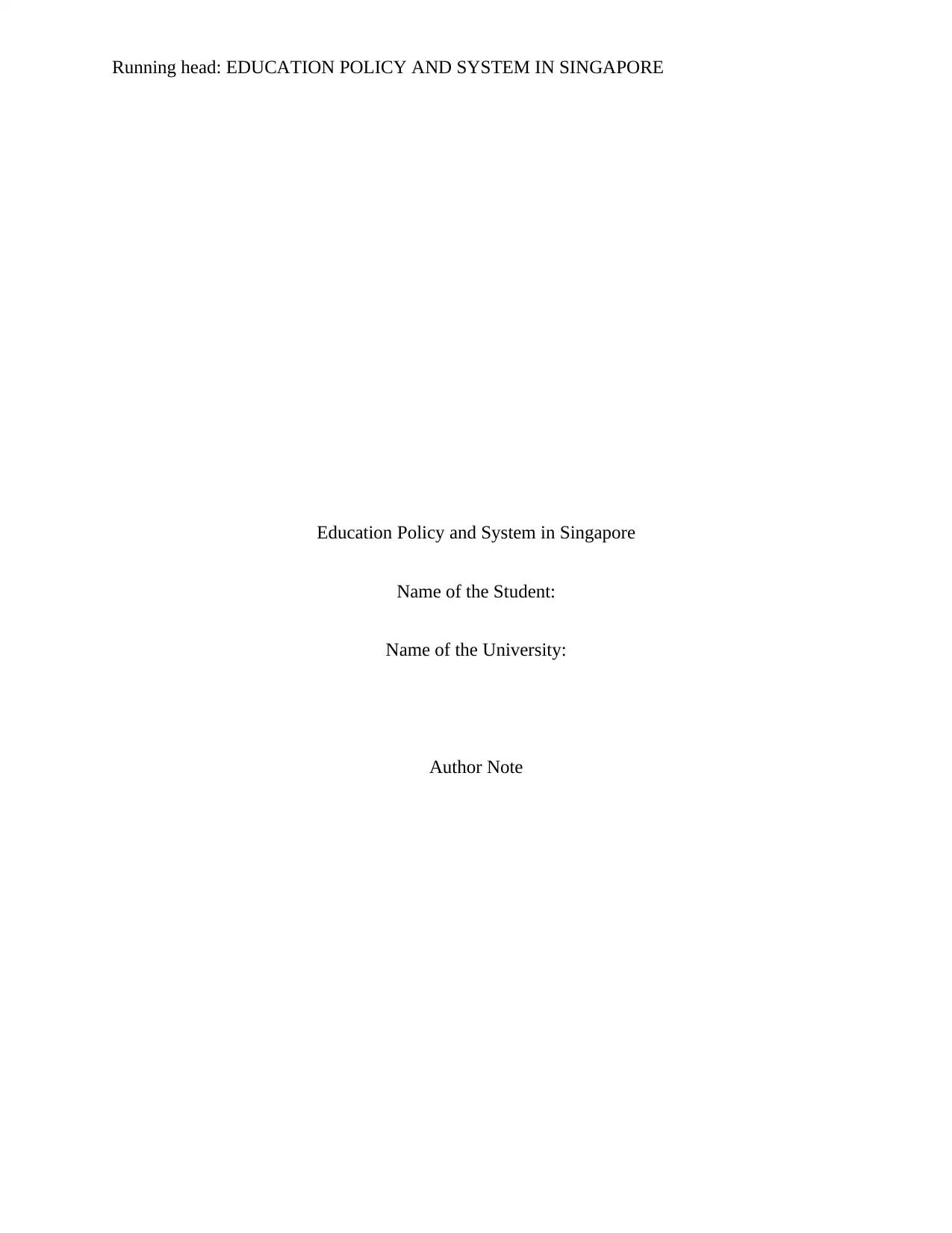
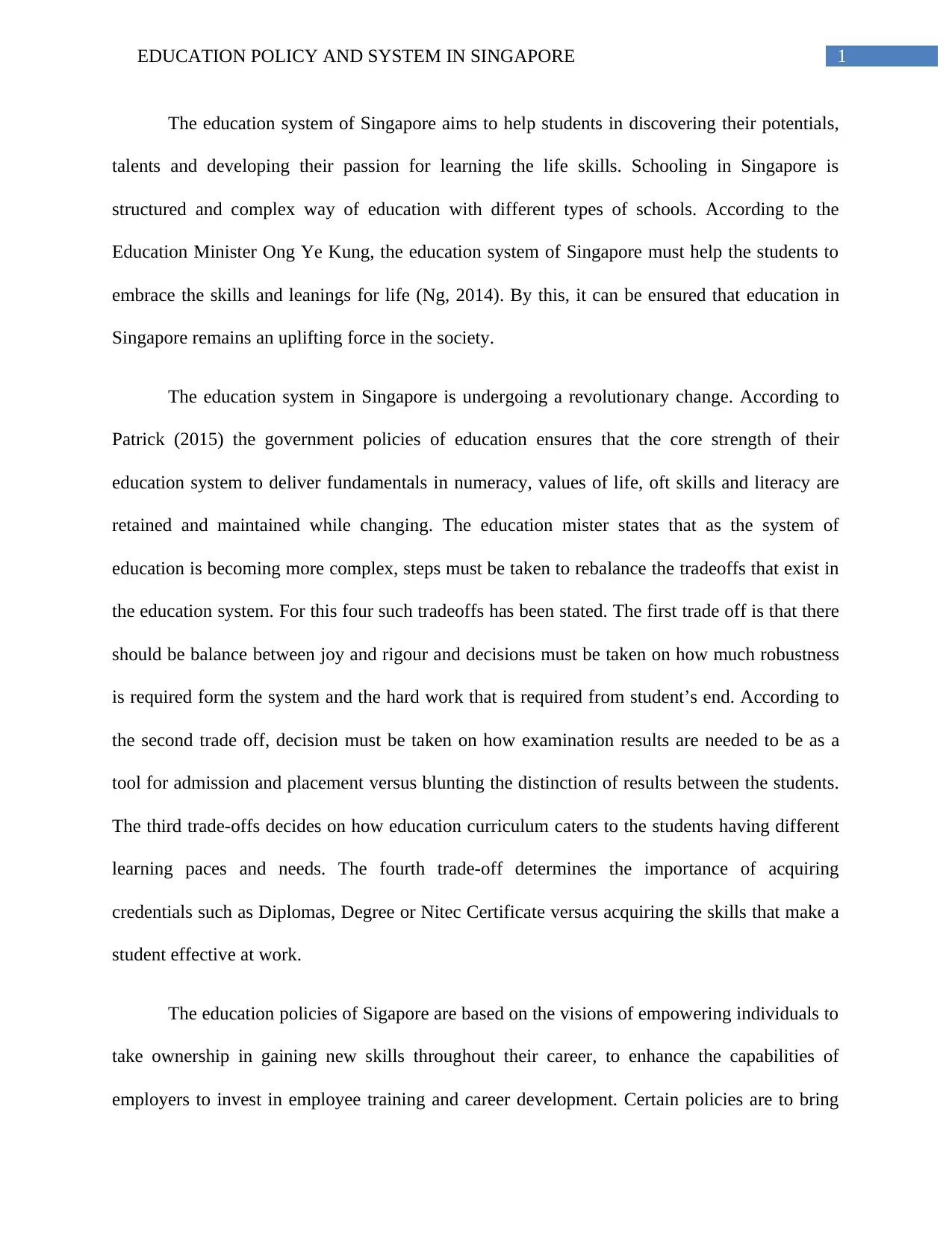
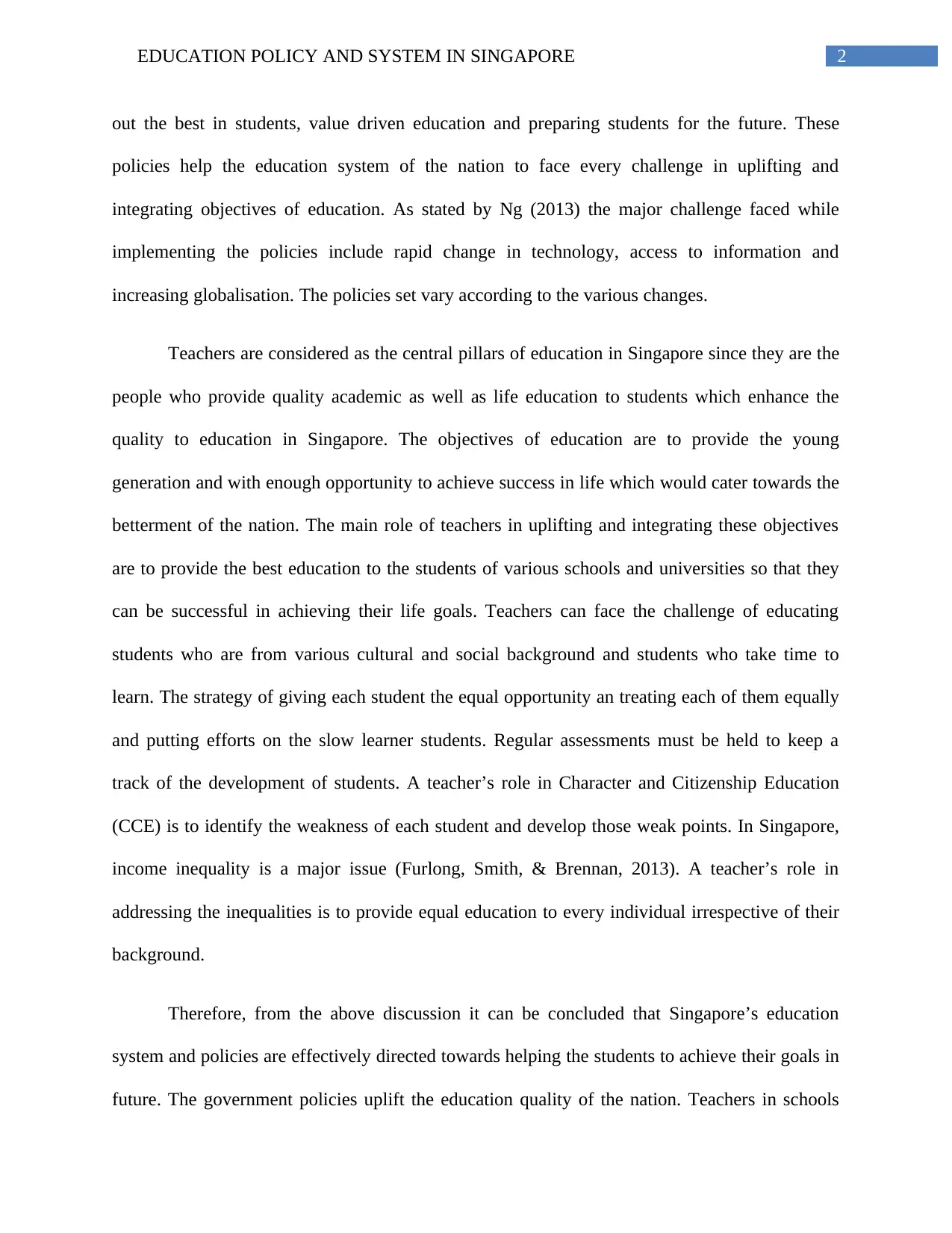

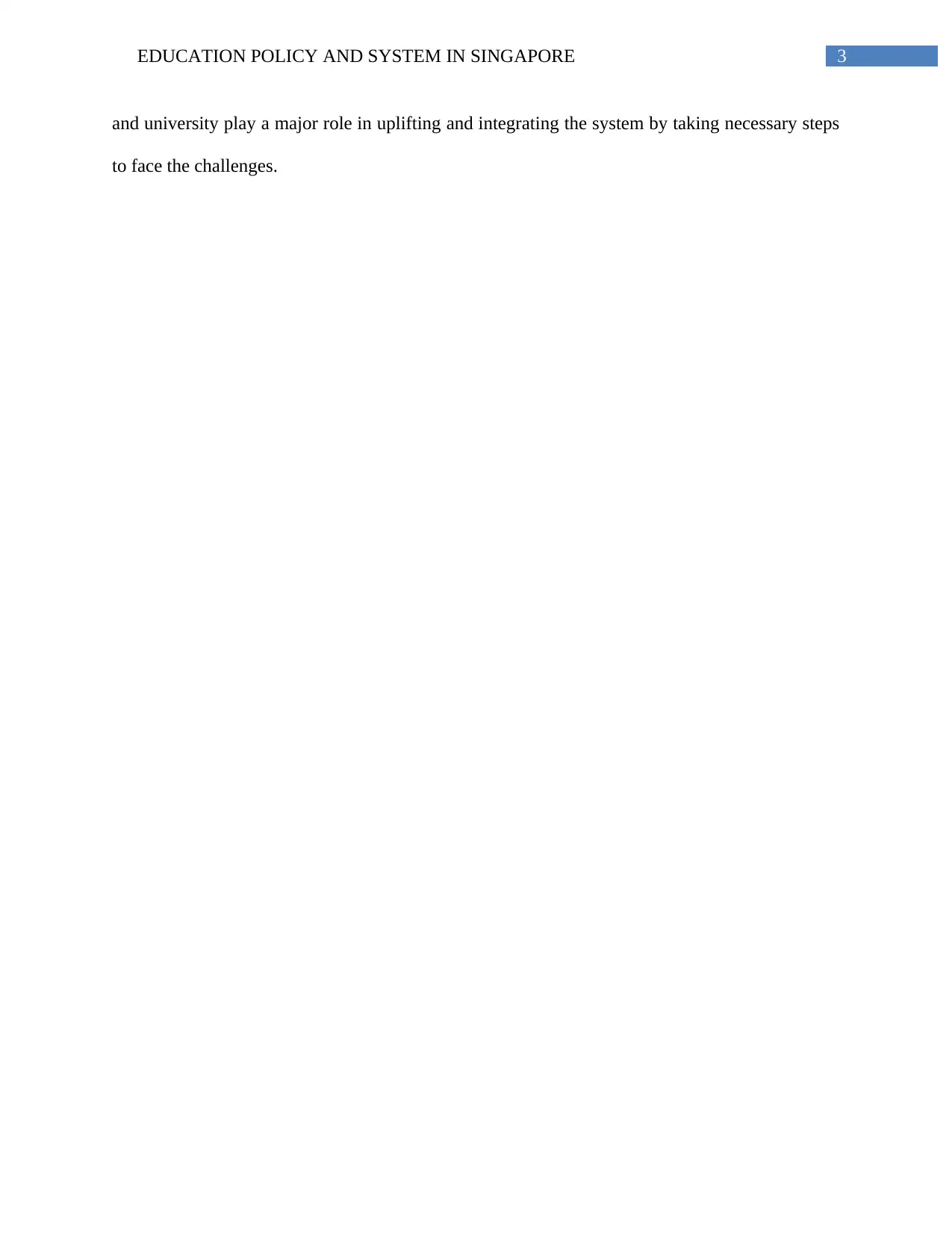
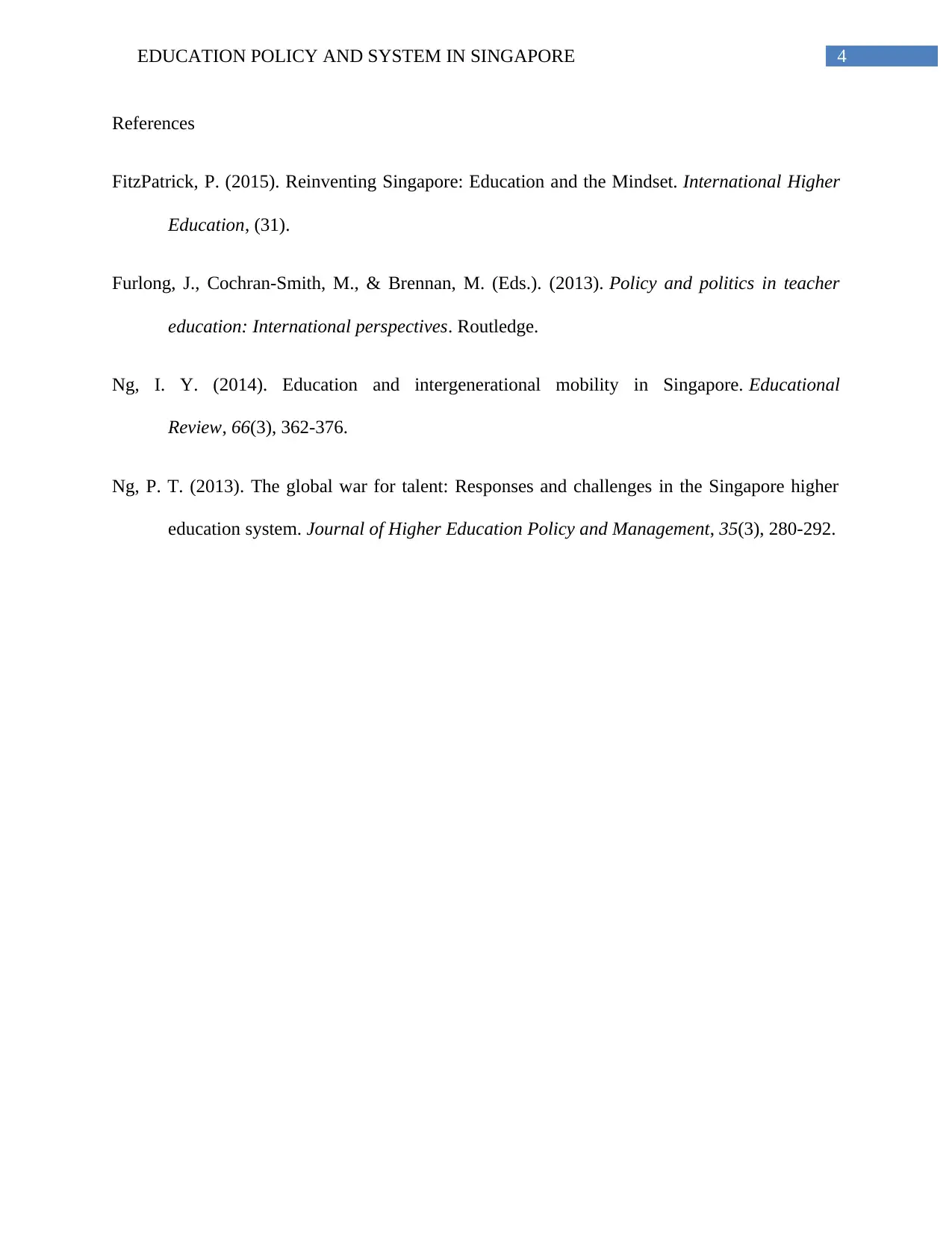






![[object Object]](/_next/static/media/star-bottom.7253800d.svg)